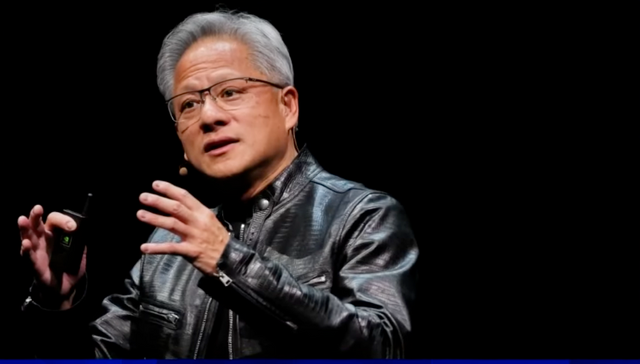The AI Revolution: Insights from Jensen Huang's Vision

Jensen Huang, NVIDIA CEO, Source: CNBC
In the rapidly evolving landscape of artificial intelligence, understanding the underlying hardware and business models is crucial for investors. The Jensen Huang's recent interview at the Goldman Sachs conference provide valuable insights into the future of AI and its impact on various industries.
The Heart of AI: More Than Just Consumer GPUs
When we think of NVIDIA GPUs, many of us picture the RTX series cards nestled in gaming PCs. However, the real powerhouses driving the AI revolution are far more formidable. NVIDIA's H100, priced at around $50,000 per unit, and their AI server DGX100, costing a staggering $5 million, represent the true cutting edge of AI hardware.
These figures underscore a critical point: the infrastructure required for training Large Language Models (LLMs) is immensely expensive, with GPU costs alone potentially reaching $1 billion. This scale of investment is reshaping the tech industry landscape, creating new giants and challenging established players.
The Shift in Computing Paradigms
We have seen a significant shift in the semiconductor industry. Intel's long-standing dominance is waning, while companies like Apple and ARM are rising to prominence. This change reflects a broader trend towards specialized, energy-efficient chips optimized for AI workloads.
The US-China semiconductor war, with NVIDIA caught in the crossfire, further complicates this landscape. It underscores the strategic importance of AI chips in the global tech race and the geopolitical implications of technological leadership.
AI as a Service: The New Frontier
Jensen Huang's vision, as expressed in his Goldman Sachs interview, aligns closely with some other insights. He emphasizes the growing importance of AI as a Service (AIaaS) models. Cloud service providers are building massive AI infrastructures, which they will rent out to businesses and developers.
This model democratizes access to AI capabilities, allowing companies of all sizes to leverage advanced AI without the need for massive upfront investments in hardware. It's a shift that could accelerate AI adoption across industries and fuel the next wave of innovation.
The Rise of Custom AI Solutions
Companies like Naver, one of the few globally capable of training LLMs, are pushing the boundaries of what's possible with AI. Their decision to develop custom semiconductors reflects a broader trend: as AI becomes more central to business operations, companies are increasingly looking to tailor their AI infrastructure to their specific needs.
This trend could lead to a proliferation of specialized AI chips and systems, each optimized for particular use cases or industries. For investors, this suggests potential opportunities in companies developing custom AI solutions or the tools to create them.
The Future of AI: Beyond the Data Center
Looking ahead, the integration of AI into mobile devices, as Samsung is pursuing, points to a future where AI capabilities are ubiquitous. This shift could transform user experiences and create new categories of AI-powered applications.
Jensen Huang's concept of "digital engineers" - AI systems that augment human capabilities - provides a glimpse into how AI might reshape the workforce. Rather than replacing humans, AI could become a powerful tool that enhances creativity and productivity across various professions.
Investment Implications
For investors, these trends suggest several key areas to watch:
- Companies developing advanced AI chips and infrastructure.
- Cloud service providers building out AI capabilities.
- Businesses leveraging AI to create innovative products and services.
- Firms developing custom AI solutions for specific industries or use cases.
The AI revolution is not just about technology; it's about the transformation of entire industries and the creation of new business models. As AI becomes more pervasive, its impact will likely be felt across all sectors of the economy.
The insights from Jensen Huang's vision paint a picture of a world where AI is not just a tool, but a fundamental shift in how we approach computing, business, and problem-solving. For investors, understanding these trends and their implications will be crucial in navigating the opportunities and challenges of the AI-driven future.
Harry Potter Library (HPL) Community
Please join the HPL community. You will get upvotes for your posts. Simply join and post there using the tags "hpl" or "harrypotterlibrary" in your post.
- Community Address: https://steemit.com/trending/hive-140602
- About HPL Community:
EN: Harry Potter Library - HPL
KR: [해리포터의 도서관 (Harry Potter Library, HPL)](https://steemit.com/hive-140602/@harryji/ab7uv-harry-potter-library-hpl
